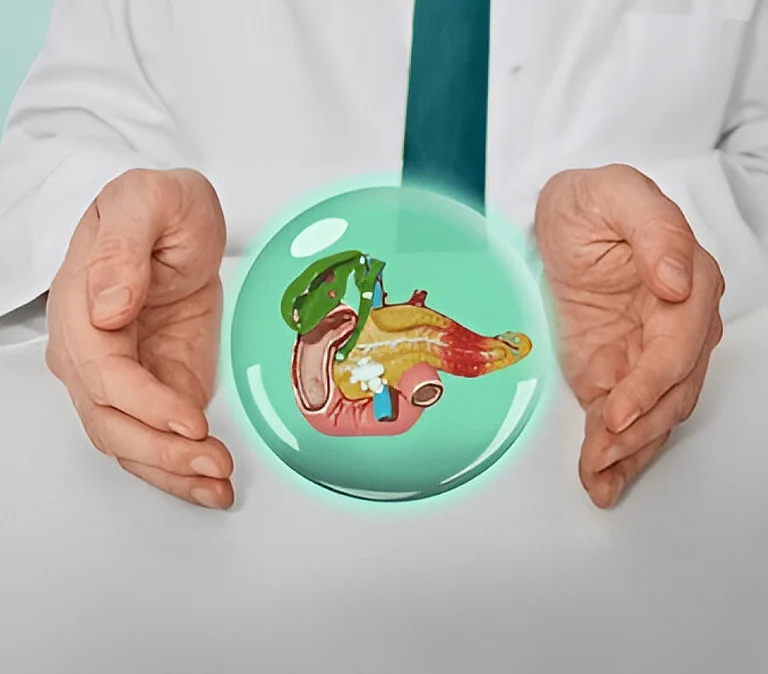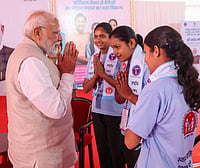Integrative models combining modern oncology with Ayush systems could significantly improve the quality of life, particularly for vulnerable populations, said Union Minister of State for Ayush and Health & Family Welfare, Prataprao Jadhav on National Cancer Awareness Day on November 7.
“Integrative oncology reflects India’s strength in combining the precision of modern science with the wisdom of Ayush systems,” added Vaidya Rajesh Kotecha, Secretary, Ministry of Ayush.
“Our goal is to create a patient-centric, evidence-based model of cancer care with global standards.”
On its part, the Ministry of Ayush, in collaboration with the Indian Council of Medical Research (ICMR), has established five Advanced Centres for Integrative Health Research at AIIMS locations nationwide.
AIIMS Nagpur is leading cancer-focused research, while the Tata Memorial Centre’s Advanced Centre for Treatment, Research and Education in Cancer (ACTREC), Mumbai, has set up a Centre of Excellence for Ayush Medicine Development for Cancer Care with ministry support.
The Central Council for Research in Ayurvedic Sciences (CCRAS) has signed a memorandum of understanding with ACTREC for collaborative clinical studies, further strengthening evidence-based integrative practices.
Additionally, the All India Institute of Ayurveda (AIIA), Goa, inaugurated the country’s first Integrative Oncology Research and Care Centre (IORCC) on 27 September, during the 10th National Ayurveda Day.
The IORCC brings together modern oncology, Ayurveda, Yoga, physiotherapy, and diet therapy under one roof, through a collaboration between the Goa government, AIIA, and ACTREC.
Official sources report that more than 7,800 patients have been treated at the AIIA, 2,200 at AIIMS Jhajjar, and 2,600 at the National Institute of Ayurveda, Jaipur. CCRAS Mumbai collaborates with Tata Memorial Centre on clinical trials of Ayurvedic formulations such as Carctol-S and CAGHE. Studies have also shown that Yoga improves disease-free survival by 15% and overall survival by 14% in breast cancer patients, while the Ayurvedic formulation Ayush QOL-2C enhanced survival and quality of life during chemotherapy.
“The purpose is not to replace chemotherapy or radiation but to make them more tolerable and improve outcomes,” said Dr. Manohar Gundeti, Research Officer (Ayurveda), CCRAS. “Ayurveda supports immunity, reduces toxicity, and aids rehabilitation.”
Beyond government initiatives, NGOs such as ICTRC (Wagholi), Apollo AyurVAID, Bengaluru, and Arya Vaidya Sala, Kottakkal, are developing integrative models accessible to both privileged and underserved communities. Internationally, the Ministry has partnered with the US National Cancer Institute and presented research at the American Association for Cancer Research (AACR) 2025 meeting in Chicago, said a government official.
The Ministry’s Centres of Excellence, including TMC–ACTREC, Mumbai, and Arya Vaidya Sala, Kottakkal, continue to demonstrate the impact of integrative care. Over 26,000 patients, including 338 lung cancer cases, have benefited from these programmes, which combine supportive therapy with conventional treatment.
“Integrative oncology is making cancer care more compassionate, effective, and focused on holistic well-being,” said Kotecha.
India estimated over 1.4 million new cancer cases in 2022, with lung cancer being the most common in males and breast cancer in females. The cases are projected to continue rising, with lifestyle factors like tobacco use and obesity being major contributors.























